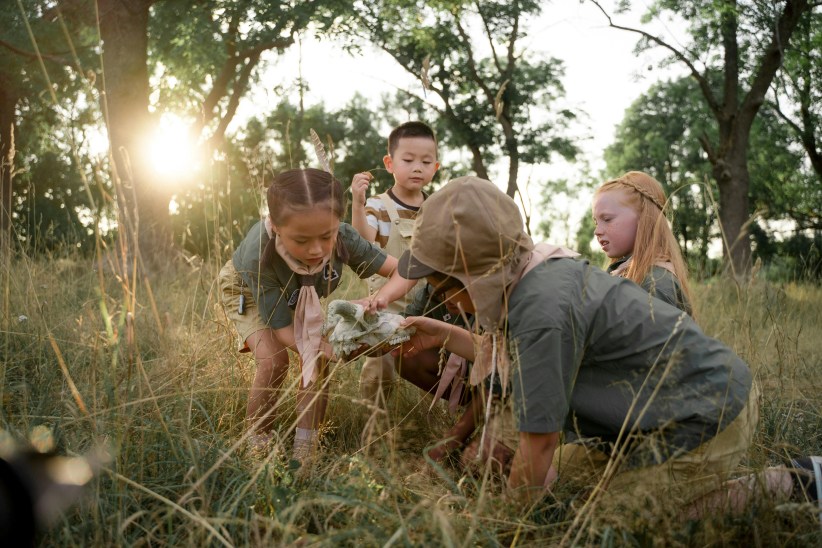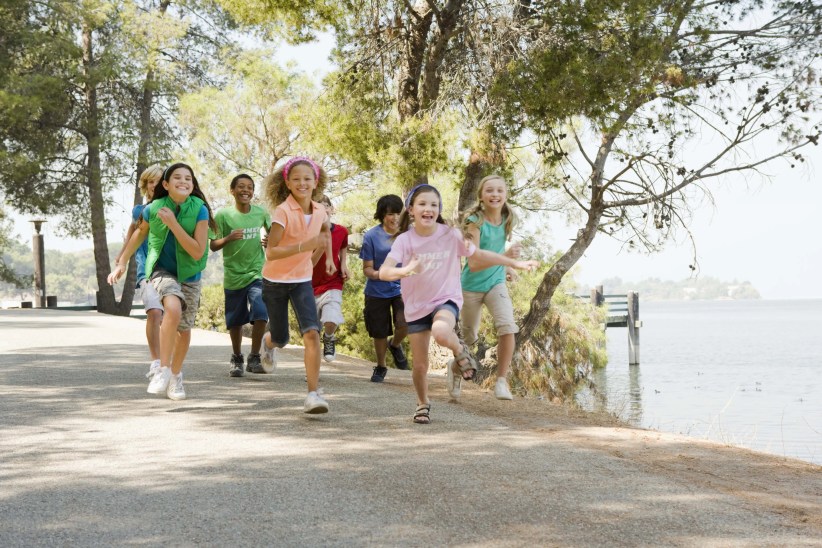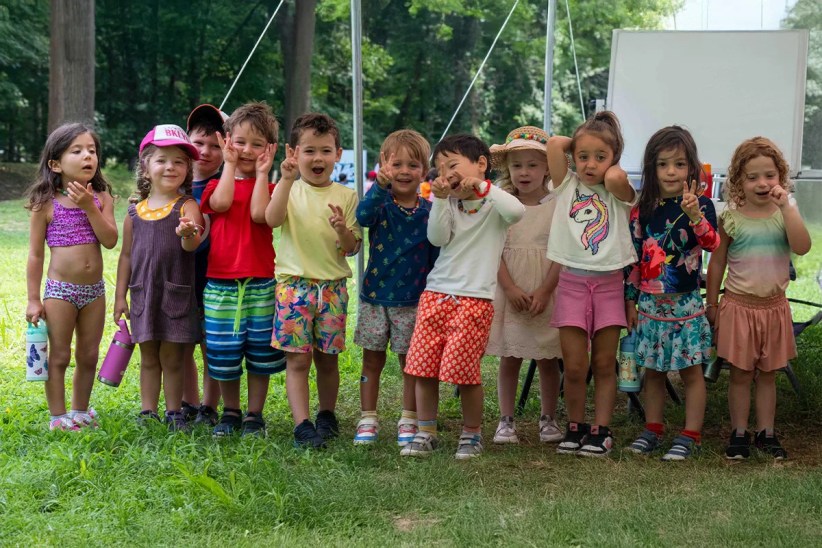
PLEASE NOTE: The city’s biggest Camp Fairs are coming up on March 25-26 on the Upper East Side and the Upper West Side. The fairs are informative, free, and fun for the whole family. The Camp Fairs (the largest in NYC) offer families the unprecedented opportunity to speak with a big host of camp directors and get essential questions answered. CLICK HERE for details and to register.
You’ve heard these statements so many times: “Camp is the best thing that ever happened to my child.” “My child came back from camp more confident and independent.” “My closest friends are my camp friends.” People who have gone to camp completely understand these accounts, but for people who have never attended camp themselves, it’s hard to understand what is so special about camp. What is it that makes camp so extraordinary?
“Camp is a different environment than school or a traditional setting,” says Genna Singer, director of camps at the JCC Manhattan. “Children have the opportunity to explore, whether hands-on or emotionally. They don’t have the pressure to be the best, and they are willing to take risks and test new waters that they may not do in a hometown setting.” Jeff Gould, owner and director of Independent Lake, a co-ed overnight camp in Thompson, PA, adds: “Camp is a place where children can spread their wings and try new things without feeling like they are being judged. It’s a caring, non-competitive environment where kindness rules.”
American Camp Association (ACA) research has found that 92 percent of campers said that camp helped them feel good about themselves and 70 percent of parents reported that their child gained self-confidence at camp. When a child tries something like getting on a horse for the first time or going down the zip line after being apprehensive, children gain confidence by accomplishing something they didn’t think they could do. “Last summer, I was taking a few families on a new camper tour through the adventure course,” Singer says. “One of the 4-year-old girls started to cry to her parents that she wouldn’t be able to do it. I went over to the girl and asked her if she would be willing to support her friends when they try, and cheer for them even if they don’t finish the course. She said: ‘Yes because they tried.’ I let her know that her only job is to cheer for her friends. Five weeks later at family visiting night, the mom of the girl told me they spent the whole evening at the course. The little girl had climbed to the top that night for the first time. She wasn’t pushed to do it, but challenged herself to get to the top and did it in her own time.”
When children go to day or overnight camp, they are given the opportunity to grow more independent. Separation from parents gives a child the ability to think independently, which builds self-esteem. “Parents often find it hard to let their child be independent when he or she is right in front of them. At camp, children are given the reins in a safe and supervised way to try things, make decisions, and feel a sense of independence,” Singer says. “We regularly present children with opportunities to make choices and be accountable for those choices. If they choose basketball for a 40-minute activity, they can’t change their mind in the 24th minute. There is so much growth potential when we give children choice.”
Children become part of a community at camp. They learn to share in camp traditions, work together, support each other, eat together, and at sleepaway camp, live in bunks together. “From the moment the campers step off the bus, we welcome them and make them feel included. Within minutes of getting to camp, we tell them what cabin they are in, who their counselor is, their bunkmates’ names, and that we have all been waiting for them,” says Matt Tees, executive director of Camp DeWolfe, a Christian co-ed sleepaway camp on Long Island. “We immediately give them the feeling that they belong here, that they have a role to play, and they are part of our camp community.”
Every day at camp, children are having a new experience and learning new skills. Through these new experiences, campers discover their interests. Gould recounts an example from last summer.
“One of our 13-year-old campers, Rocky, was very involved in our digital arts program, and he was able to break into our camp piggy bank where campers have their discretionary cash. The account isn’t real money, but just numbers, and he transferred $750 into his own account. I saw this as an opportunity to channel his skills and use them for the good of all campers at Independent Lake. I challenged him to create an Uber app for the golf cart at camp, where campers could have the ability to win the use of the iPad and Uber app for the day and be picked up in the golf cart to be shuttled between activities. He created it within two weeks, was cheered on by other campers, and was able to better the camp experience using his talents and creativity.”
Children at camp are constantly communicating, whether with other campers or staff. Campers talk while in their bunks, at meals around the table, on the way down to the lake, and while doing projects in arts and crafts. “Campers learn at an early age how to figure things out on their own. They talk about whose turn it is to go into the gaga pit and who’s next to shower,” Gould says. “These are simple conversations, but they are learning conflict resolution, which is an important skill that will help them to become successful adults.” Camps also don’t allow technology at camp. There is no texting, Instagram or Snapchat—only one-on-one communication. According to a Kaiser Family Foundation study, today’s children spend over 7.5 hours a day engaged in media, and that doesn’t include time spent on smartphones texting and engaged in social media. “We don’t have cell phones or computer time. Not because they are bad, but because there are so many other opportunities for children to engage with one another and with the counselors,” Tees says. “Relating face to face and interacting with each other is how you learn about people and what is appropriate. You aren’t learning that when zoned out with technology.”
Not convinced yet about the magic of camp? After one summer of sending your child to camp, you will be.






















